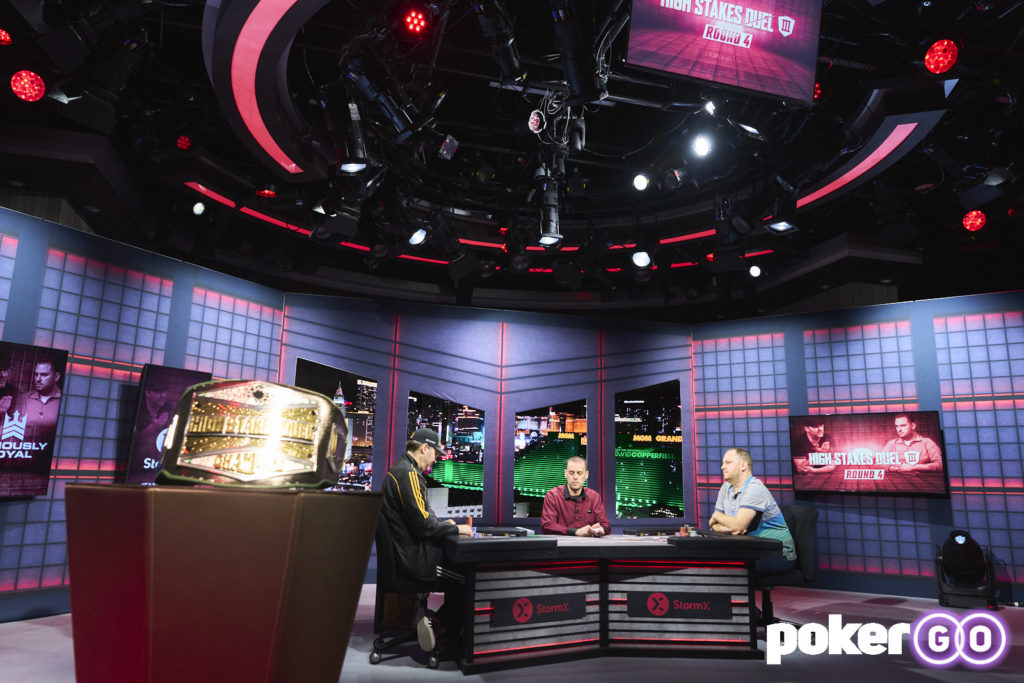
Is this high stakes enough for you?
A month ago, Phil Hellmuth defeated Scott Seiver in Round 4 of High Stakes Duel III, PokerGO’s made-for-streaming heads-up competition. Each player risked $400,000, the highest the stakes had gotten in the appropriately-named competition. Seiver had the option to ask for a rematch, which Hellmuth would be obligated to accept. But the stakes would double, bringing into question as to whether or not Seiver would want to risk a whopping $800,000. According to Hellmuth on Tuesday, Scott Seiver is more than willing, as the rematch is on.
Hellmuth tweeted, “Here we go for $1,600,000. High Stakes Duel update: @scott_seiver has exercised his option to play me in a heads match for $800,000 apiece ($1.6M),” adding that the match will probably be in August (after the 2022 World Series of Poker) and that they are working on scheduling.
Phil Hellmuth has owned High Stakes Duel so far, winning nine out of the ten contests in the series. There has not been a High Stakes Duel match that did not feature the 16-time WSOP bracelet winner. He defeated Antonio Esfandiari three consecutive times in High Stakes Duel I and repeated the feat against Daniel Negreanu in High Stakes Duel II.
The lone non-poker pro Hellmuth played against was sports commentator Nick Wright in the opening match of High Stakes Duel III. After dispatching of Wright, Tom Dwan took his turn, handing Hellmuth his first loss. Hellmuth opted for the rematch and beat Dwan in Round 3, leading to Round 4 versus Scott Seiver.
High Stakes Duel structure
Stakes begin at $50,000 per player in Round 1. The loser of the match, as mentioned in Seiver’s case earlier, has the option of a rematch. Should that person decide to call it quits, a 30-day window begins during which anyone else can step in to take their place for the next round, upon which the stakes double (and continue to double each round). If nobody does, that “season” of High Stakes Duel is over.
The winner, however, cannot necessarily pick up their winnings and go home right away. If a player begins a winning streak in Round 1-3, they must win three matches in a row before being able to quit. If a player begins a winning streak in Round 4 or later, they have to win twice in a row to cash out.
Thus, Hellmuth could have cashed out and reset the stakes, waiting for High Stakes Duel IV, as he has a two-game winning streak after beating Dwan and Seiver, but he was willing to press his bets and let Seiver (or a new player) decide if High Stakes Duel III continued.
Both players are busy with the 2022 WSOP right now. Seiver has already won a bracelet, but also infamously fired 43 bullets in the $1,000 FLIP & GO event, without even making it to the second stage. Hellmuth just got back in action this week after testing positive for COVID-19 and confining himself to a hotel room for about a week.
Image credit: PokerGO.com























